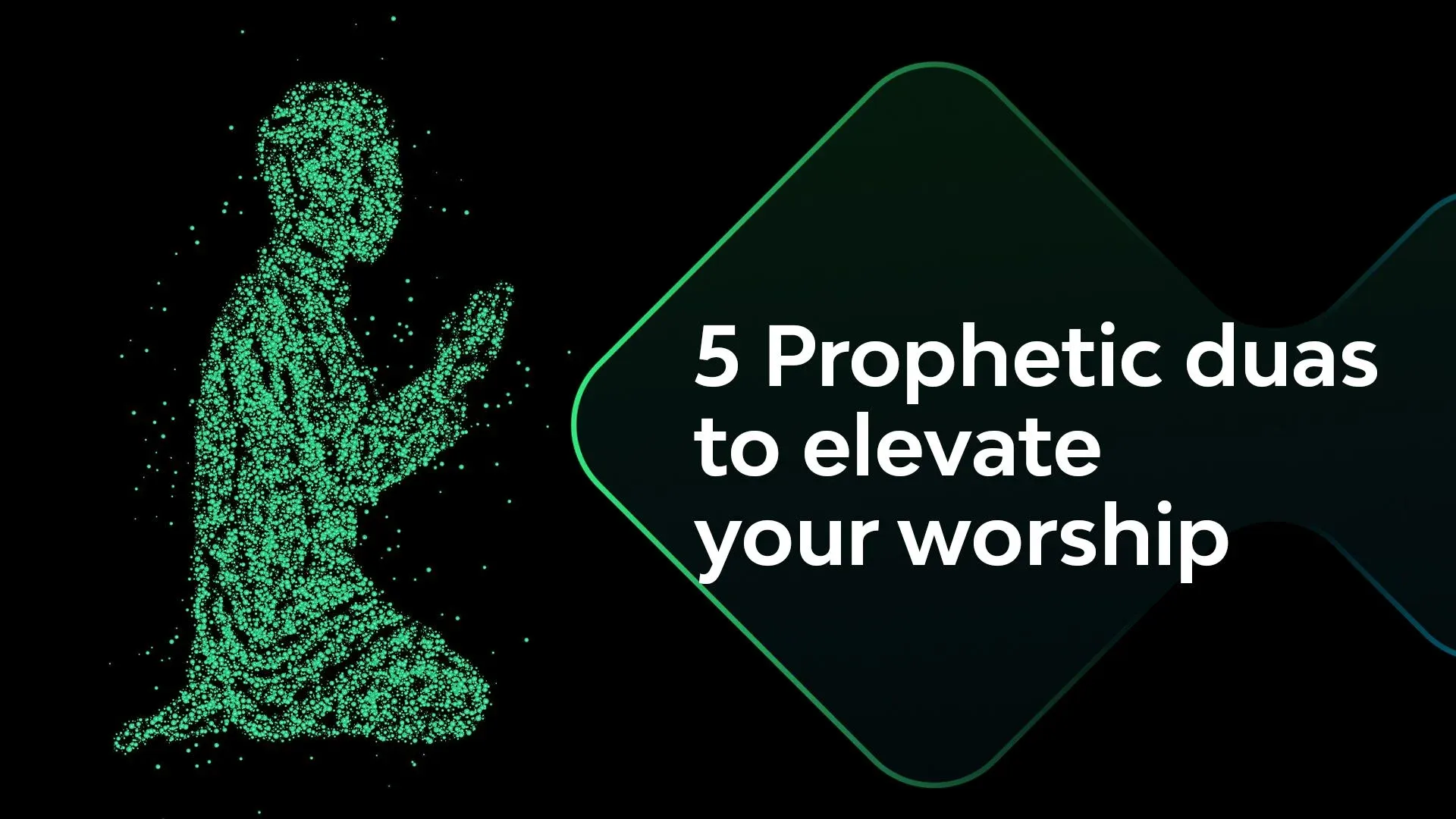📌 TL;DR Summary
- Preparing for Ramadan begins months in advance the companions of the Prophet ﷺ would start six months before.
- Use each Islamic month (Muharram to Shaban) to build sustainable spiritual habits.
- Gradually increase Quran engagement through recitation, memorization, and tafsir.
- Start fasting Mondays and Thursdays, and shift your schedule around Fajr to adjust your routine.
- Create a personalized dua list now to use intentionally throughout Ramadan.
- Use tools like Tarteel to track Quran goals, monitor progress, and stay accountable.
- Reduce distractions and build a spiritually nourishing environment ahead of time.
- Aim to enter Ramadan spiritually primed, not scrambling to catch up.
When Is Ramadan 2026?
In 2026, Ramadan is expected to begin on the evening of Tuesday 17 February 2026 and will conclude on the evening of Wednesday 18 March 2026, with the exact dates being dependant on the sighting of the moon.
But wait - Ramadan isn't just something we stumble into. It's something where we're meant to rise to the occasion. Yet, for many Muslims, Ramadan often feels like a spiritual scramble - scrambling to adjust sleep, scrambling to finish the Quran, scrambling to “feel something.” But what if you treated the next 6 months as sacred ground - not just the 30 days of Ramadan?
This guide helps you do just that. Using the next half-year, we’ll help you build spiritual habits, heal what holds you back, and strengthen your connection with Allah - so that by the time the moon is sighted, you don’t just feel ready.
You are ready.

Why 6 Months? A Prophetic Perspective
The Prophet ﷺ and the Sahaba didn’t just live for Ramadan. They lived through it all year long. In fact, it’s said to be narrated:
“The Salaf would pray to Allah for six months to grant them the ability to reach Ramadan and then pray for another six months for Allah to accept it.”
Ramadan isn’t an event - it’s a culmination. And the best way to honor it is by laying the spiritual foundations early.
What Can Change in 6 Months?
Six months is:
- ~180 days
- 26 weeks
- Half a lunar year
That’s enough time to:
✅ Memorize 2–3 Juz of Quran (for some)
✅ Build a tahajjud routine
✅ Heal your relationship with prayer
✅ Learn the tafsir of key surahs
✅ Break a long-term bad habit
✅ Start fasting Mondays and Thursdays
It’s not about doing everything at once - it’s about building momentum. Here’s how to structure it.
Step 1: Clarify Your Ramadan Goals (And Why You’ve Missed Them Before)
Before jumping in, reflect on:
- What do I always wish I did in Ramadan?
- What holds me back each year? (Fatigue, distractions, lack of Quran familiarity?)
Now flip it:
- What can I start doing now to ease that struggle in advance?
Example:
→ “I always feel disconnected when reading Quran.”
✔ Start building a Quran habit now - with translation and tafsir.
→ “I get too tired to pray Taraweeh.”
✔ Build sleep discipline and try night prayers on weekends.

Step 2: Break It Down Month by Month
While the spiritual build-up ideally begins from Muharram, starting from Safar still gives you ample time to prepare for Ramadan with intention and depth. Here’s how to gradually ramp up your connection to the Quran, salah, and habits of ihsan across the next six months.
Safar: Foundation & Intention
- Focus: Clarity, intention-setting, and gentle habit introduction.
- Key Actions:
- Identify 1–2 spiritual goals (e.g., pray all Fajr on time, recite 1 page daily).
- Audit your current distractions - digital, social, or emotional - and begin reducing.
- Start journaling your relationship with the Quran - how do you feel about it now?
- Mindset: “What kind of heart do I want to bring into Ramadan?”
Rabi' al-Awwal: Prophetic Alignment
- Focus: Emulating the Prophet ﷺ and building love through action.
- Key Actions:
- Incorporate reading or listening to seerah - even 10 minutes a day.
- Begin a light Quran memorization habit (1 ayah per day or per 2 days).
- Add one extra sunnah prayer (e.g., 2 rakat before Fajr or after Isha).
- Mindset: “How can I draw nearer to the Prophet ﷺ before Ramadan?”
Rabi' al-Thani: Strengthening Consistency
- Focus: Refining and anchoring your spiritual habits.
- Key Actions:
- Stick to a consistent Quran habit using tools like Tarteel’s goal tracker.
- Start fasting once a week (e.g., Mondays) to adjust physically and mentally.
- Track your hifz progress and review with spaced repetition.
- Mindset: “Am I showing up for Allah daily, even in small ways?”

Jumada al-Awwal: Adding Spiritual Weight
- Focus: Leveling up - add slightly more challenge and worship quality.
- Key Actions:
- Increase recitation to 1–2 pages a day or set a weekly surah goal.
- Begin fasting Mondays & Thursdays if possible.
- Add daily or weekly dhikr with reflection on meaning (e.g., Names of Allah).
- Mindset: “How can I deepen - not just add to - my worship?”
Jumada al-Thani: Pre-Ramadan Simulation
- Focus: Structuring your day around worship as practice for Ramadan flow.
- Key Actions:
- Start waking up 15–30 minutes earlier to pray, make dhikr, or revise Quran.
- Limit screen time after Maghrib and spend time reviewing personal du’as.
- Try one “Ramadan day” each week (fast + full worship focus).
- Mindset: “What would it look like if Ramadan started tomorrow?”
Rajab: Spiritual Springtime
- Focus: Sacred momentum - Rajab is one of the four sacred months.
- Key Actions:
- Increase Quran recitation & memorization - aim to recite more than usual.
- Solidify your pre-dawn and post-Fajr worship routine.
- Begin writing or updating your Ramadan dua list.
- Use Tarteel’s mistake detection to refine hifz before Ramadan.
- Mindset: “Rajab is for planting the seeds - I want to bloom in Ramadan.”
Shaban: Pre-Ramadan Powerhouse
- Focus: Final preparation, forgiveness, and fasting.
- Key Actions:
- Fast regularly - many scholars recommend most of Shaban be spent fasting.
- Finalize any Quran memorization goals for Ramadan (e.g., surahs for Taraweeh) using Tarteel.
- Reduce commitments, simplify your calendar, and create a Ramadan plan.
- Increase nightly salah and dua - aim for Qiyam at least once a week.
- Mindset: “This is my final lap. I want to arrive in Ramadan spiritually awake.”

Quran Preparation: Build Your Spiritual Muscles Now
One of the most common regrets people have during Ramadan is:
“I didn’t read or connect with the Quran enough.”
Let’s prevent that. Here’s how to build your Quranic connection now, month by month:
1. Start Small, Stay Consistent
Even 5 verses/day builds fluency. It’s not about quantity - it’s about showing up.
2. Understand What You Recite
Pair your reading with a reliable English translation or tafsir video. You can also get a sense of every Juz in the Quran and its themes on our FREE Ramadan Guide - just scroll down to the calendar and check out the Juz Summaries!

3. Practice Memorization Using Tools
Tarteel’s mistake detection helps simulate teacher-style recitation. Use it to:
- Hide ayat and recite from memory
- Catch your mistakes in real-time
- Track which ayahs you keep forgetting
4. Create a Quran Goal
With Tarteel’s Goals feature, set weekly or monthly milestones (like memorizing Surah Yaseen or revising Juz ‘Amma) and let the app help you track progress.
Fasting Prep: Don’t Wait Until Shaban
Want to feel energized and not exhausted during Ramadan?
Build your fasting stamina now:
- Start with Mondays and Thursdays
- Try the 13th, 14th, and 15th of each lunar month
- Practice hydrating and meal planning (especially suhoor-friendly foods)
By fasting now, you reduce the shock your body feels during Ramadan.
Dua Preparation: Build a Heart That Knows What to Ask
Ramadan is the month of dua - but often, we don’t know what to ask until we’re already halfway through the month. Let's fix that now.
Start a running dua list:
- Add names of people to pray for
- Track answered prayers to build yaqeen
- Organize by topics: dunya, akhirah, healing, relationships, growth
Resources:



You can create your notes digitally or using a physical journal. Why not support a Muslim-owned business in the process?
- Towards Faith have a beautiful Ramadan Legacy Planner which sets you up months in advance.
- The Muslim Journal Company has a stunning range, crafted to encourage everything from Quran journaling to simple daily reflections.
- Muslim Journals offer everything from journals for children to sticker sheets that bring that extra vibrancy to your notes.
- From Eternah, the iconic Islamic infographics page, comes a range of digital downloads, dua collections and more.
Review and Reconnect: Monthly Spiritual Self-Audits
At the end of each month, ask:
- What helped me feel closer to Allah?
- What was hard - and why?
- What one thing will I do better in the next 30 days?
Document this in a journal or even voice notes. These audits will help you show up to Ramadan with clarity and accountability.
Tap into the spirit of reflection. Head to the Reflections section in our Ramadan Guide for a thoughtful daily prompt throughout each month as we lead up to Ramadan.
Mindset Shift: You Don’t Need a New You. You Need a Real You.
You don’t need to “transform” by Ramadan. You need to return. Return to your fitrah. Return to Allah. Return to your best self.
The goal of these next 6 months isn’t to become someone else - it’s to remove the distractions that keep you from who you already are at your core: a servant of the Most Merciful.
Keep up with Tarteel for all the latest on Ramadan prep and more! We're dedicated to helping you have your best Ramadan yet.
Now all that's left to say is...
اللهم بلغنا رمضان، وبارك لنا في رجب وشعبان
O Allah, allow us to reach Ramadan - and bless us in Rajab and Sha’ban.

FAQs
Is 6 months really enough to prepare for Ramadan?
Yes! Small, consistent steps over 180 days can have a massive spiritual impact - especially when you approach it with clarity and sincerity.
What should I focus on if I’m already consistent with the Quran?
You can level up your tafsir knowledge, volunteer more, deepen your dua life, or help others prepare spiritually. There’s always room to grow.
How can I memorize Quran between now and Ramadan?
Focus on short surahs or build fluency with one Juz. Use tools like Tarteel for self-testing, error tracking, and custom goals.
What if I start strong but fall off track?
Expect dips - they’re part of the process. But don’t let a missed week cancel the whole journey. Revisit your “why” and restart.
Can I use this guide with kids/family?
Absolutely. Make it a group effort - even doing one activity a week as a family can build deep Ramadan readiness together.







